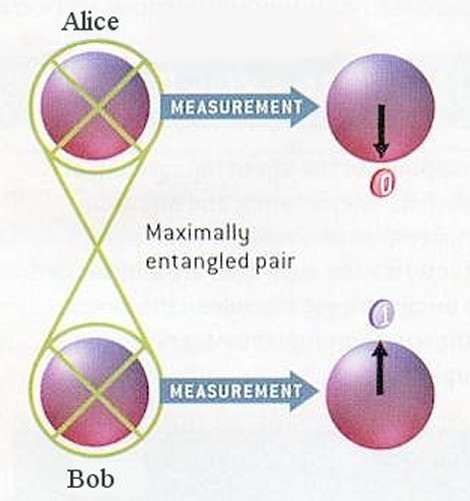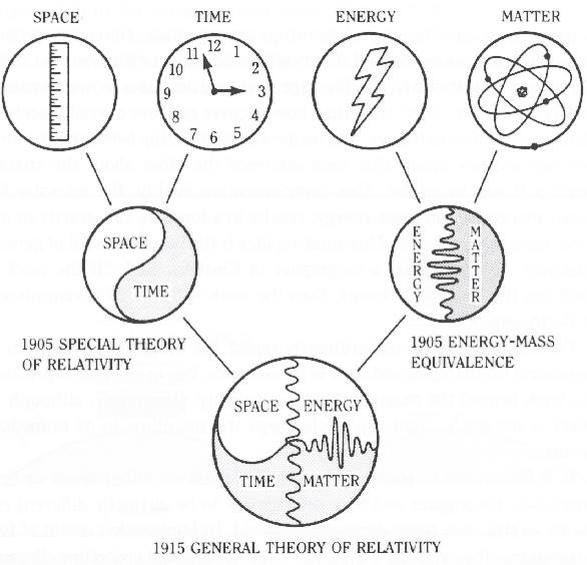syn·site
in dictionary terms: (noun): an entangled, non-singular locus of experience, exchange, environment, observation, objects, or relationships, crystallized in a networked space, actual or virtual, marked by simultaneity, plurality, and potentiality. (verb): the act of synchronizing or integrating multiple disparate locations or concepts into a unified, complex space. This process involves the recognition and active engagement with the overlapping, entangled realities of these sites, effectively creating a new, dynamic, and non-singular site. The usage of "site" as a verb in this context is an extension of its standard usage to refer to positioning or placing something, but here it refers to positioning or placing within a conceptual, multi-layered space.
in dictionary terms: (noun): an entangled, non-singular locus of experience, exchange, environment, observation, objects, or relationships, crystallized in a networked space, actual or virtual, marked by simultaneity, plurality, and potentiality. (verb): the act of synchronizing or integrating multiple disparate locations or concepts into a unified, complex space. This process involves the recognition and active engagement with the overlapping, entangled realities of these sites, effectively creating a new, dynamic, and non-singular site. The usage of "site" as a verb in this context is an extension of its standard usage to refer to positioning or placing something, but here it refers to positioning or placing within a conceptual, multi-layered space.
SYN (along with, at the same time | from Greek SYN, with | ~SYNTHETIC) + SITE (N: point of event, occupied space, internet address; V: to place in position | from Latin SITUS, location, idleness, forgetfulness | ~WEBSITE ¬cite ¬sight), cf. SITE/NON-SITE (from Robert Smithson, A PROVISIONAL THEORY OF NONSITES, 1968)
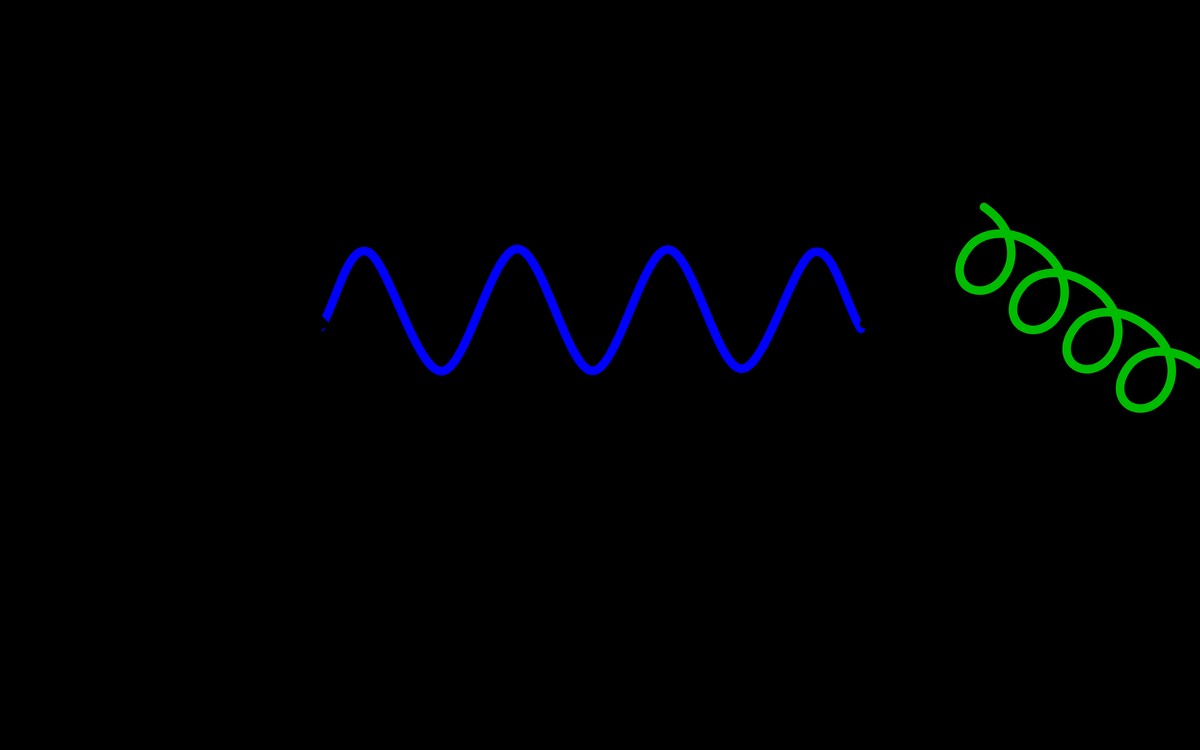


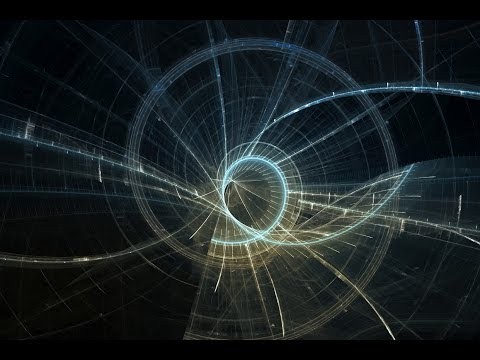


Sanko-time is a concept developed by [Larry Achiampong] that relates to the Ghanaian Twi word Sankofa, which roughly translates as ‘to go back for what has been left behind’ and alludes to using the past to prepare for the future. [...] Sanko-time takes the listener through a rich soundscape connected by the Greenwich Meridian.
Threaded with a powerful narrative about the legacy of colonialism from Achiampong, Sanko-time is a hypnotic synthesis of poetry, field recordings and music, including drum loops by the late Tony Allen an Afrobeat pioneer who brought together elements of Ghanaian Highlife and Jazz. The work is infused with the sounds and rhythms of Accra and London, including the lapping waves of Jamestown (the fishing harbour in Accra) and the water of the Royal Docks, as well as the street sounds of Accra’s Makola Market. The tides and empires explored in Sanko-time rise and fall to reveal the imprints of histories and the colonial past in our present.
Sanko-time is a concept developed by [Larry Achiampong] that relates to the Ghanaian Twi word Sankofa, which roughly translates as ‘to go back for what has been left behind’ and alludes to using the past to prepare for the future. [...] Sanko-time takes the listener through a rich soundscape connected by the Greenwich Meridian.
Threaded with a powerful narrative about the legacy of colonialism from Achiampong, Sanko-time is a hypnotic synthesis of poetry, field recordings and music, including drum loops by the late Tony Allen an Afrobeat pioneer who brought together elements of Ghanaian Highlife and Jazz. The work is infused with the sounds and rhythms of Accra and London, including the lapping waves of Jamestown (the fishing harbour in Accra) and the water of the Royal Docks, as well as the street sounds of Accra’s Makola Market. The tides and empires explored in Sanko-time rise and fall to reveal the imprints of histories and the colonial past in our present.
Sanko-time is a concept developed by [Larry Achiampong] that relates to the Ghanaian Twi word Sankofa, which roughly translates as ‘to go back for what has been left behind’ and alludes to using the past to prepare for the future. [...] Sanko-time takes the listener through a rich soundscape connected by the Greenwich Meridian.
Threaded with a powerful narrative about the legacy of colonialism from Achiampong, Sanko-time is a hypnotic synthesis of poetry, field recordings and music, including drum loops by the late Tony Allen an Afrobeat pioneer who brought together elements of Ghanaian Highlife and Jazz. The work is infused with the sounds and rhythms of Accra and London, including the lapping waves of Jamestown (the fishing harbour in Accra) and the water of the Royal Docks, as well as the street sounds of Accra’s Makola Market. The tides and empires explored in Sanko-time rise and fall to reveal the imprints of histories and the colonial past in our present.



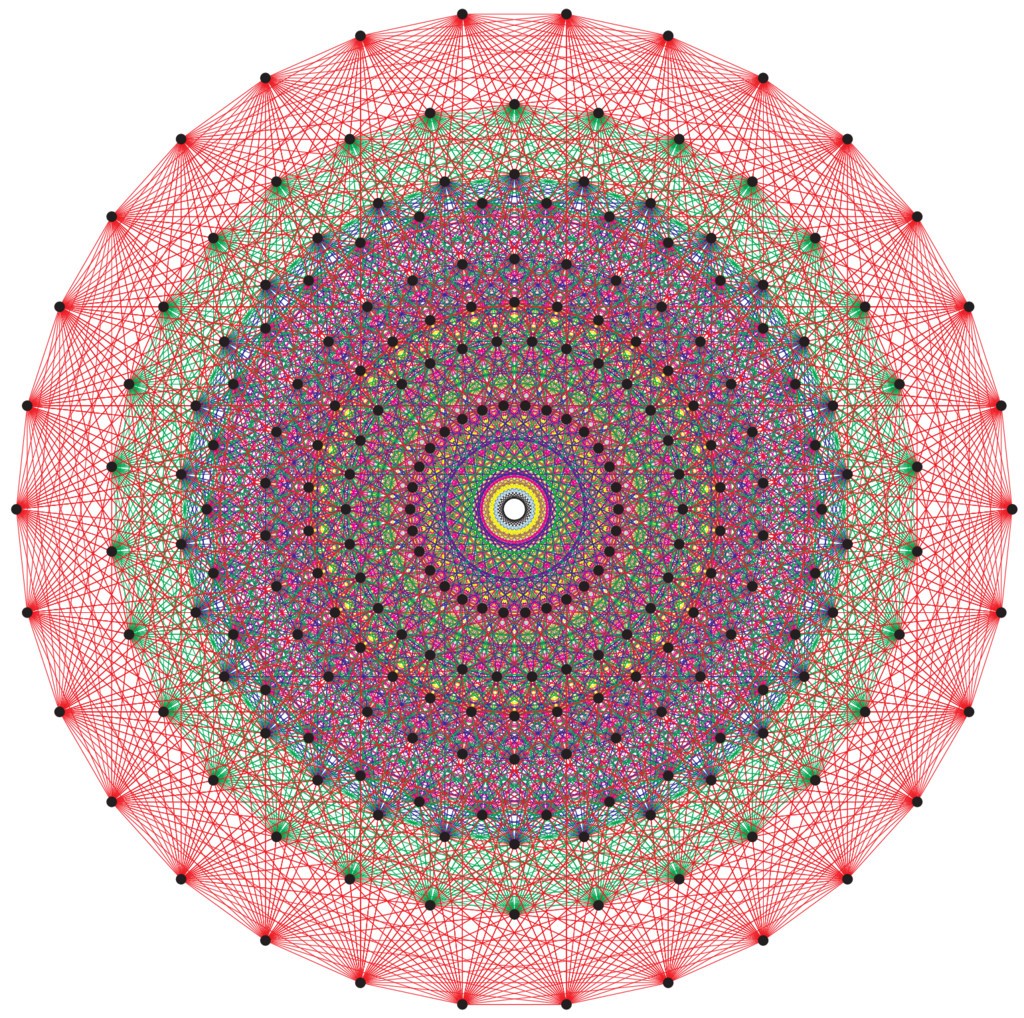


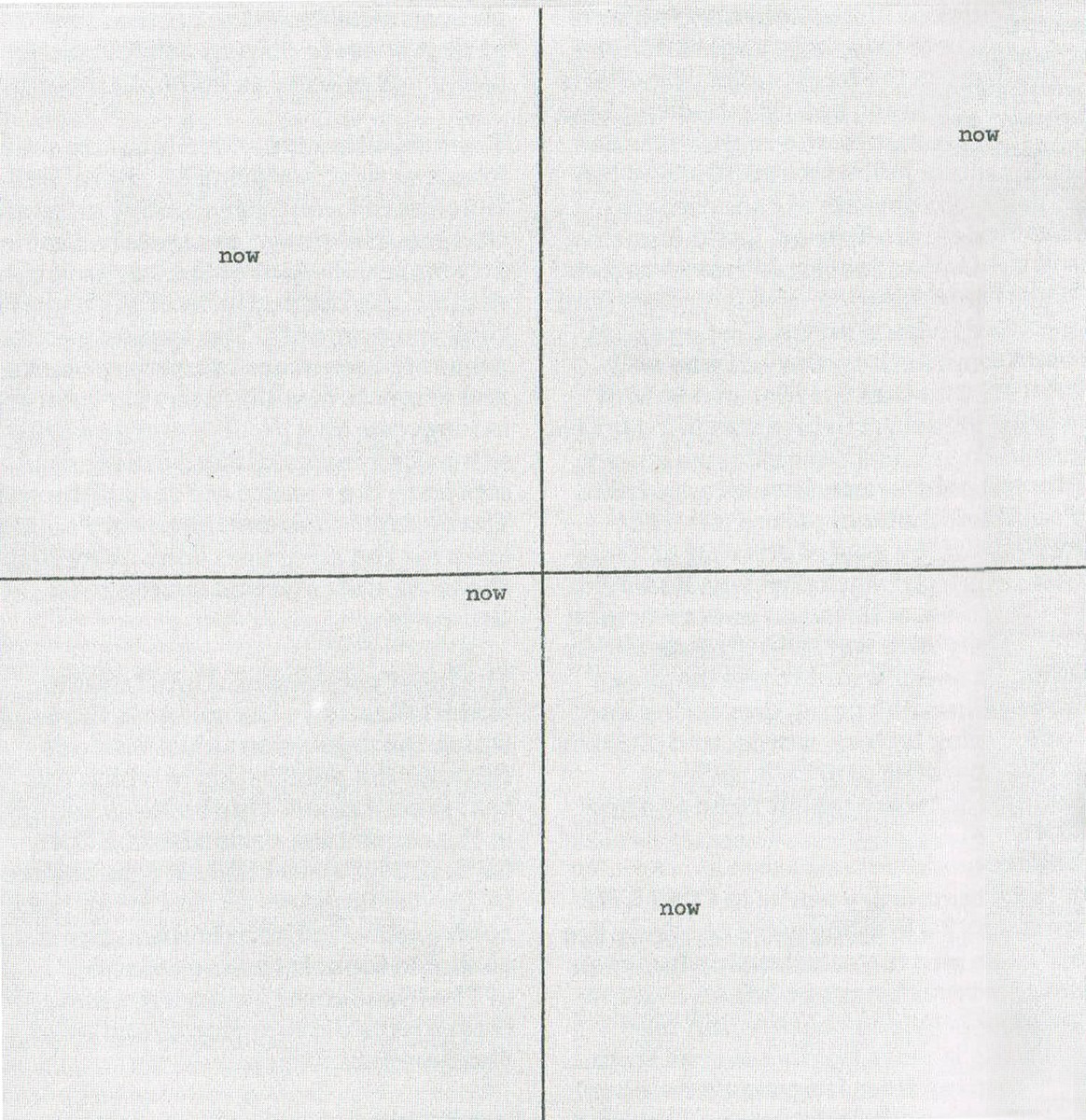


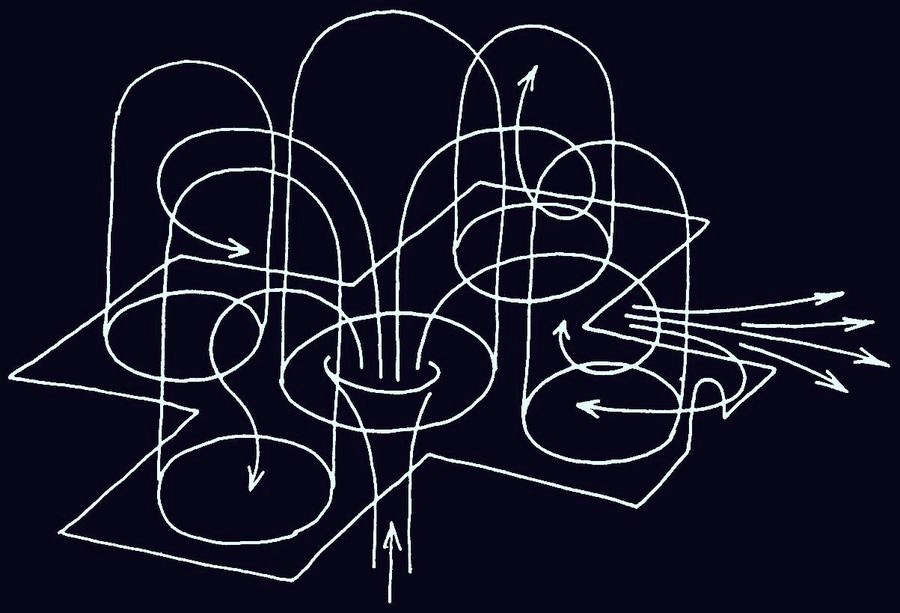


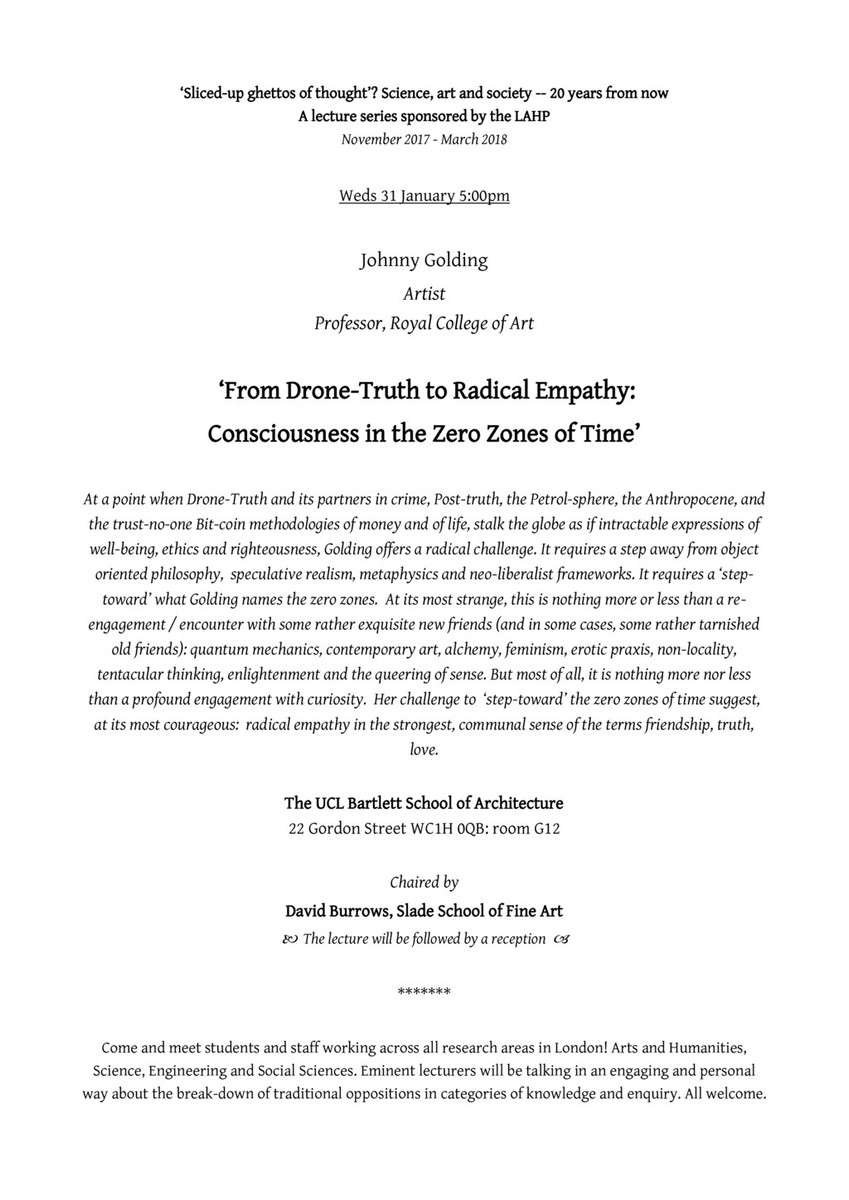


“Glitch” is conjectured as finding its etymological roots in the Yiddish glitch (“slippery area”) or perhaps German glitschen (“to slip, slide”); it is this slip and slide that the glitch makes plausible, a swim in the liminal, a trans-formation, across selfdoms.
“Glitch” is conjectured as finding its etymological roots in the Yiddish glitch (“slippery area”) or perhaps German glitschen (“to slip, slide”); it is this slip and slide that the glitch makes plausible, a swim in the liminal, a trans-formation, across selfdoms.
“Glitch” is conjectured as finding its etymological roots in the Yiddish glitch (“slippery area”) or perhaps German glitschen (“to slip, slide”); it is this slip and slide that the glitch makes plausible, a swim in the liminal, a trans-formation, across selfdoms.
